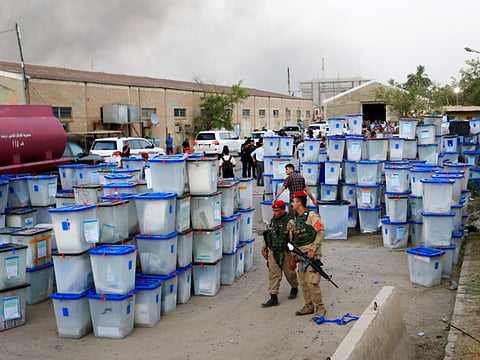The Arab summer of discontent
Inconclusive elections in Iraq and Lebanon, anger on Jordan’s streets and Arab football teams’ poor show give no cause for cheer

As the summer kicks in, the scene in the Arab world looks bleak. Inconclusive elections in Iraq and Lebanon, anger on Jordan’s streets over subsidy cuts and tax hikes, lacklustre performance of the Arab teams in t the Russia World Cup, and the ongoing Gulf Cooperation Council crisis: there is little cause for cheer.
At the football World Cup, all four Arab teams disappointed not only their compatriots back home, but also the wider Arab fans who rooted enthusiastically only to lament their awful performance. I tweeted that the performance of the Arab teams is mirroring the dysfunctional and at times chaotic Arab politics.
The parliamentary elections in Lebanon and Iraq have solved very little, and muddied the waters. Jordan has witnessed a major outcry, where people in mass took to the streets to protest against a new tax law which would have slapped the middle class with steep levies. The government also lifted subsidies and increased the price and fee of essential services such as gas, electricity and other commodities. That uprising led to the resignation of the government and the appointment of a new government. Jordan, like many countries in the region and beyond, suffers from structural and fiscal problems. So the withdrawal of the tax bill won’t solve the country’s economic crisis.
Saudi Arabia, Kuwait and UAE held an urgent midnight summit at the end of Ramadan to provide Jordan with $2.5 billion (Dh9.19 billion) in financial support: Deposits in Central Bank of Jordan, and long term loans to finance Jordan’s infrastructure projects.
After more than a month-and-a-half of elections and following the announcement of results, governments in the fragile states of Iraq and Lebanon are yet to be formed with a proportional distribution of seats according to both countries’ sectarian, tribal ethnic lines, which perpetuate a fragmented and broken societies and political systems.
The accusations of widespread voting irregularities, and the call by Iraqi parliament for a hand count of almost 11 million votes manually, for fear of hacking the electronic voting machines, have dampened the views and cast a long shadow of the utility of democracy and political participation of societies and political systems emerging out of wars. Clearly, political participation is not a panacea for such societies.
In Lebanon, the results of its parliamentary election, the first in nine months after extending the term of the previous parliament three times, was not what the Lebanese expected or yearned for. The mosaic Lebanese society and its fractured political system have been for too long known to be a mailbox of messages and a proxy and a pawn in the hands of regional and international powers. Of late, Lebanon has become a battle ground for the regional rivals in their ongoing cold war, played out through their political proxies. And that doesn’t behove well for political stability.
Abdullah Al Shayji is a professor of Political Science and the former chairman of the Political Science Department, Kuwait University. Twitter: @docshayji.


